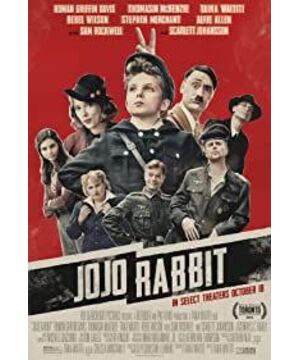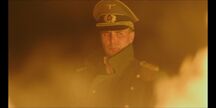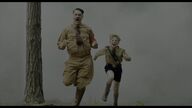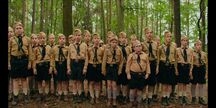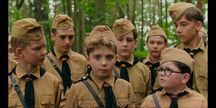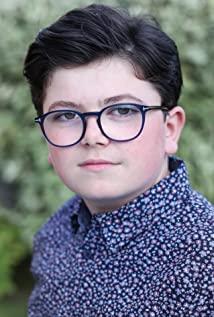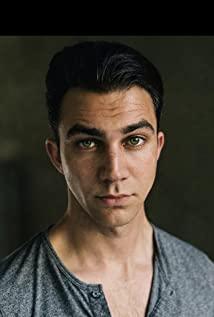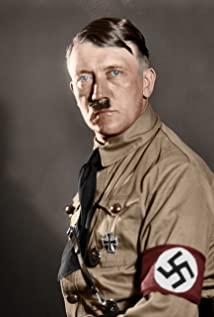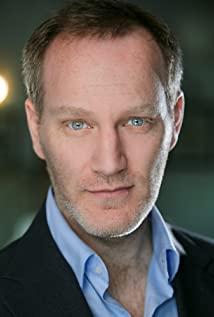When a comedy has both "children" and "WWII" in the label, we should be careful, it may be a tragedy.
A trailer with an animal title (Jojo Rabbit), bright colors and a cheerful soundtrack, the big-eyed boy standing in the center of the poster with a heroic image-one cute element after another all hints at us, this film is called "Jojo "The Fantastic World" movie may bring a whole new atmosphere of optimism against the seriousness and cruelty of war movies. And the audience, such as I, would put down their guard, thinking it was at least a cheerful heart-warming movie, and would be happy to walk into the cinema to have fun. After all, life is cruel enough, who wants to suffer more?
So the "Searchlight" cartoon head lit up playfully , and the "Beatles" rock and roll sounded easily. You are sitting in the crowd and ready to chew popcorn, but director Taiga Viditi laughs behind the screen:
"Go on, little fools, I will fire a long-range cannonball to bomb your heart."
From the trailer to see through the director Tayi Jia - Wei Diti's ulterior motive is difficult, after all his well-known works are "Quake 3 " This kind of commercial films. It is more difficult to distinguish from the protagonist, because the boy named Roman Griffin Davis was singled out from 1,000 children around the world, and there has not been a movie before.
So where are our clues? Look at two familiar names: sexy Scarlett Johansson, Sam Rockwell who captured people's hearts with paradoxical acting skills, what are they going to play? How could these two stars be supporting roles for a fledgling boy?
The black-and-white documentary editing headline of "Heil Hitler!" was called out by the crowd. The excitement of rock music suddenly turned the interior scene into a colorful room. A ten-year-old with beautifully combed hair, beautiful uniform, and beautiful pupils The boy faced the mirror and yelled "Heil Hitler!" like everyone else. We saw his dream idol appear-the Nazi head of state Hitler.
But this Hitler is not so terrible. He was shy with a beer belly, the military uniform didn't seem to fit so well, and he didn't have Gestapo's embarrassing expression when he spoke. He even made fun of him with the boy in a funny way. Oh, it turns out he wasn't really Hitler, he was imagined.
The "Wandering World" began here. Jojo, a boy who dreamed of devoting his life to the Nazis to defend his country and becoming a hero like Hitler, began his story of growth.
The first part of the film cannot tell you that it is a tragedy. And my vigilance against tragedy only began at a certain moment in the training camp.
When Qiao Qiao joined the Boy Scouts to start the military training he dreamed of, all the running and jumping on the playground and listening to the instructions of the instructors seemed like dreams. The beautiful dreams like bubble gum being blown to face the sun's glaring gleaming sprouts in the heart of every child who runs wildly. And the instructor does not seem to be the Nazi officer in our mind—the image of a murderous demon is very different from the man in front of him who drinks a sip of wine and talks nonsense, and even wears sloppy clothes. Take a shot, how easy it is. The children laughed too.
When I thought another Wes Anderson-style WWII version of "Moonrise Kingdom" was about to begin, lovely Jojo secretly gave me a signal.
——That was when the children were ordered to burn the book, Jojo happily took the book to the fire. Others were as excited as they were around a bonfire party, but Jojo, who never doubted his dreams, showed a trace of doubt in the flickering flames. He looked at the burned books, as if saying: Really? Is it really going to be burned?
The collective power finally made him throw out the book in his hand. But this slight hesitation made me start to guard, he may not be as firm as he showed.
Sure enough, the setback happened very quickly. When two older boy scouts proposed a higher-level mission during the day, Jojo directly showed resistance. They asked him to kill a rabbit.
Rabbit, so cute. How can I bear to kill it? The moment Qiao Qiao should start, but let it escape quickly. From then on he lost the notoriety of a coward, "Jojo Rabbit".
A boy scout who dare not kill a rabbit, what about killing the enemy and defending the country?
The first part of the film was almost carried out in such a jubilant atmosphere. The obstacles that Qiao Qiao encountered in the training camp were quickly resolved. He returned home from the injury, recovered, and did some simple tasks of handing out flyers. What followed was his dreamy growth environment: a beautiful mother, a beautiful and warm home, and a small town painted in cream, living with his lovely neighbors and friends.
This has nothing to do with war as we understand it. No blood, no corpses, no guns. You even suspect that they live in a paradise isolated from the world, doing some trivial tasks that seem to be revolutionary tasks that are not actually that important.
Until the director suddenly let you see the square. From Joe Qiao's point of view-a pair of feet, hanging in the air. Jojo’s mother stood by and Jojo asked her what they did, and she said, "They just did what they could."
These feet are corpses. He was hung in the middle of the square without warning, and showed his death nakedly to Jojo. However, Jojo hasn't really experienced fear, after all, his beautiful mother will play his long-awaited father at dinner, and will sing and dance with him.
Mother’s beauty and tenderness are simply the biggest cover in this film. She makes us believe that a boy like Jojo will grow up in a greenhouse. He doesn’t need to see too much cruelty of war, and he doesn’t need to go there. On the battlefield, he can spend his carefree childhood in his colorful room at ease.
Until... he heard a strange noise upstairs.
The director threw the third thunder. Inadvertently, without warning, like chewing gum and preparing to blow bubbles, you suddenly bit a stone and it broke your teeth.
Qiaoqiao walked upstairs with his curiosity, opened the cabinet door, and saw a girl. The secret box opened, and an uninvited guest arrived in his world.
Who is this girl? Why is it in sister Jojo's room? Why does she keep hiding in the cabinet?
Qiaoqiao pretended to face the stranger calmly, but her boldness, which was completely opposite to the thin body, shocked Qiaoqiao. Jojo pretended to be a well-trained Nazi boy scout, but she fought back like a beast. Qiaoqiao was at a loss. In addition to being unable to beat her, he also faced a more difficult question: She is a Jew!
Isn't the Jew a monster? How can she be such a beautiful girl?
Are the Jews stupid? Why are you so smart?
Shouldn't the Jews be arrested? Why are you hiding in my house?
Everything in Jojo's mind about the Jews, and everything that Hitler and the instructors told him, seemed to be seriously inconsistent with the reality. He was undoubtedly more shocked, more violent than burning a pile of books and killing a rabbit, and he was directly facing a war with the Jews.
The war upstairs proceeded quietly. On the one hand, Jojo wanted to fight the Jews in a hurry, and on the other hand, he was also challenging his belief: Should he catch the Jew like a Nazi? Even telling her name and exposing her has become a problem for Jojo. Jojo treats her like that rabbit, she is so beautiful, smart and cute, he doesn't want to kill her at all.
My mother's attitude has also become very weird in this "invisible war". After all, the mother and son hardly face real politics directly. Mom said, the table is Switzerland, you believe in yours, and I believe in mine. His mother allowed him to go to the Nazi training camp, but she secretly sent the "Liberation of Germany" flyer...
Qiaoqiao’s beliefs contrasted with the actions of the two people around him. What’s even more laughable is that the original firm he became more and more hesitant. He neither revealed the identity of a Jewish girl nor his mother. In that era when everyone was in danger, he was such a Nazi follower. It is absurd to be friends with the "enemies" and listen to them tell their own stories.
The Jewish girl poked him in a sentence: Jojo, you are not a Nazi, you are just a ten-year-old boy in a Nazi uniform.
After a long tug of war with Jewish girls, the director threw a fourth thunder: The Gestapo is here. They are like hounds with a keen sense of smell, knocking on the door of Qiao Qiao's house.
The person who really yelled "Heil Hitler!" from his heart appeared in front of Jojo, but he was at a loss. He suddenly understood that they might take his friend away and kill her, and he began to fear.
I was awakened at this moment when I felt the innocent dreams and friendship in the light and fullness. Because the Gestapo is really chilling, they remind me of Quentin Tarantino's similar scene in "Inglourious Basterds." The sharp eyes of the Gestapo easily penetrated everything and killed the boy's dream.
At this time, it was the scruffy instructor who saved the scene. He looked at the identity of the Jewish girl, and heard her self-reported age, he said, no problem. He let her go.
When the Gestapo left, Qiao Qiao seemed to understand something.
Only here did we gradually enter the atmosphere of war. Remembering that it is a World War II movie, it always has to face a real war.
And what is the real war? Is death.
The director threw the fifth thunder without warning: Jojo's mother died.
From his perspective, it was clearly a beautiful butterfly, but it suddenly turned to two suspended high feet. He saw his mother's leather shoes with loose laces.
He held the legs suspended in the air and wept. Tie her shoes—as his mother told him—he will finally tie her shoes, but his mother is dead.
At this point, Jojo's bright world has become gray. We can clearly feel that saturated tones are painted with a layer of gray and enter the world of cool colors. Qiaoqiao quickly perceives loneliness, hunger, and survival, as well as gunfire, corpses, and death. The war finally hit the cream-colored town where he was, and the fairy-tale houses were blown into black ruins. Jojo was walking among the corpses and met his partner, York. He really became a soldier, and he was really in danger of being killed.
The war unfolded so bloody before the boy's eyes. We can't expect him to have any illusions. The Hitler hero in his heart is also on the verge of disillusionment, because he feels more of the destruction of his home, the death of his relatives, and the ruthless female instructor putting cannonballs behind the children's ass and letting them act as cannon fodder.
At this time, Qiaoqiao understood what the war was all about. And the director finally destroyed all the beautiful things for you to see.
When we burst into tears in laughter, and laughed many times in tears, we may no longer care whether it is a happy or sad story. But it hurts my heart to suppose that Jojo is nothing more than a child with firm ideals—whether he wants to be Hitler or whatever—his ideals have been destroyed.
He kicked the Hitler in his heart and bid farewell to the idol he once believed in, as if we were growing up in a certain moment of childhood, suddenly no longer obsessed with what to believe, decided to truly clarify ourselves, what kind of person to be, and to go towards Where.
Jojo's story is a cruel growing up story. In his childhood, he was supposed to walk with his mother along the river, listen to her mother telling stories, and ride a bicycle with her leisurely. He was forced to leave her gentle and forced to receive an education in history. This makes me shudder in deep thinking, because the Jojo in this story may represent a whole generation of children who grew up in World War II. They may have enjoyed a moment of peace, may also dream of being a hero, but they have witnessed more. Ruins and death, deeply understand the barriers and fears...
However, the more frightening reminder is from the people around Jojo.
That gentle mother, how does she deal with children who disagree with her politics? She hides Jews, she believes in another value, but she must live in peace with her child, not only to protect his safety, but also to complete subtle education.
That strong Jewish girl, does she represent countless Jewish children who spent most of her childhood hiding in the dark cabinet, enduring hunger, discrimination, life and death, and endless waiting. However, she still has hope, it is impossible to be like this Stay strong in the environment where you live.
That sloppy instructor, did he represent a group of Nazi officers who never believed in the Nazis? Becoming an officer was just a wartime job. He resisted from the bottom of his heart but had to endure to live, and he would believe it when the war ended. What?
And the fat female instructor, she was really bad. She has lost her conscience and accepted evil in a frenzied brainwashing process. She killed countless people directly and indirectly, but she would not regret her actions...
The world built by these people around Jojo really made me realize how terrible war is. When the camera is no longer aimed at his room, but outside the room, his parents, his teacher, his friends, his neighbors, the people on the square he doesn't know...
I realized that they are the desolate background of the war, and the living individuals neglected in the long history of history, but in the end they become the black and white background foretelled by the opening of the film, lose their own color, and have experienced various tragedies. People, who took on all the evils of the war, were finally forgotten...
Thinking of this is inevitable, the real tragedy is no longer a tragedy of a boy growing up, but a generation of people who have suffered in the war represented by him and the people around him, telling a silent story. Some people never show up like Jojo's father. You don't know where he came from, and you don't know where he is going. Some people just disappeared in the center of the square, disappearing into the depths of history.
Until the end I was only Tayi Jia - shells Wei Diti issue of real bombing. He exploded into my heart of peace in a peaceful age, and made me feel fortunate and shameful for the peace and happiness in front of me, let alone daring to imagine what I would experience if my childhood were spent in war. Will I be that brave? Will I have something I firmly believe in? Will I be persistently guarding friendship, family affection, and love?
The lovely fairy tale finally reveals the black bottom. The boy dreams of being broken and growing up alone, and experiencing the misery of the world in the era of gunsmoke.
When I was ten years old, the innocent imagination drawn on the picture book was just a layer of paint, which was easily erased by the wind and sand.
When the story was over, Rilke’s poems appeared on the black screen, but the image of a mother played by Scarlett Johansson lingered in my mind.
She and the child wandered for a long time by the river. The green grass and the clean river surface, they all dressed brightly, enjoying the tranquility under the bridge.
She said that your child should go to enjoy romance at this time.
"One day you will find something stronger than metal, explosives, and muscle."
"That's love."
View more about Jojo Rabbit reviews


